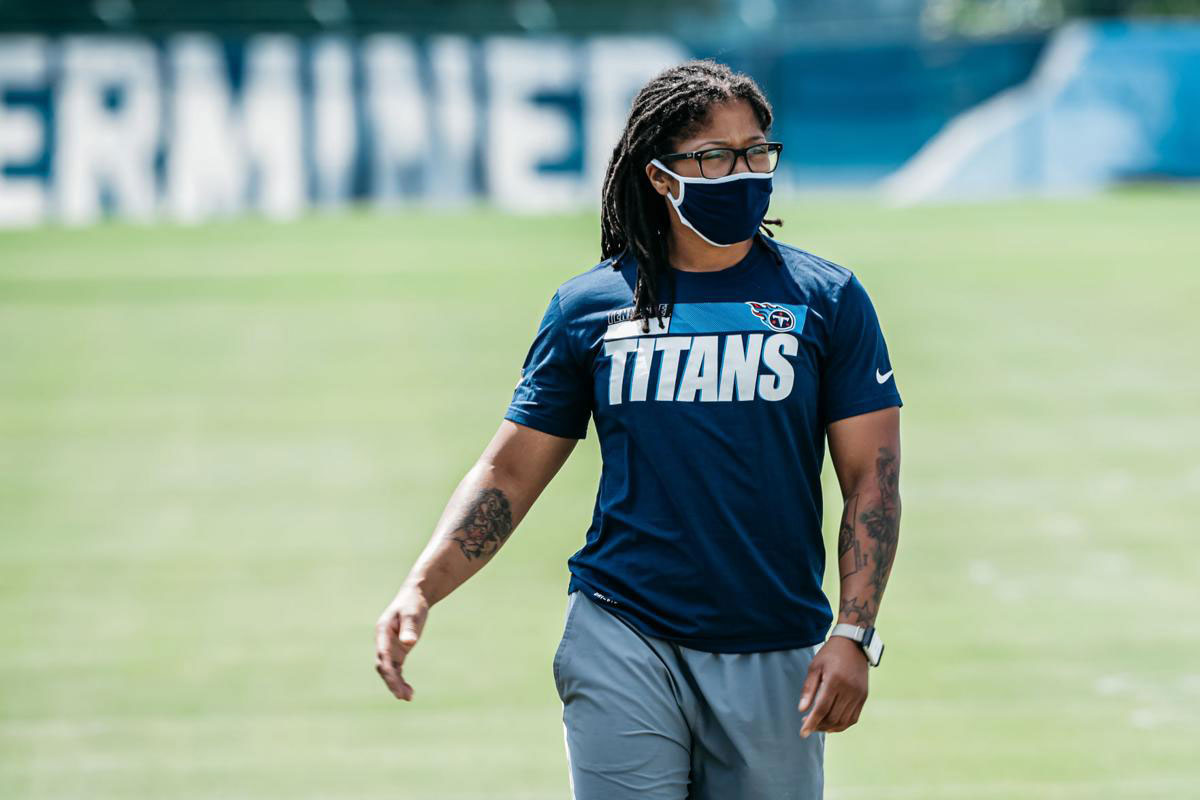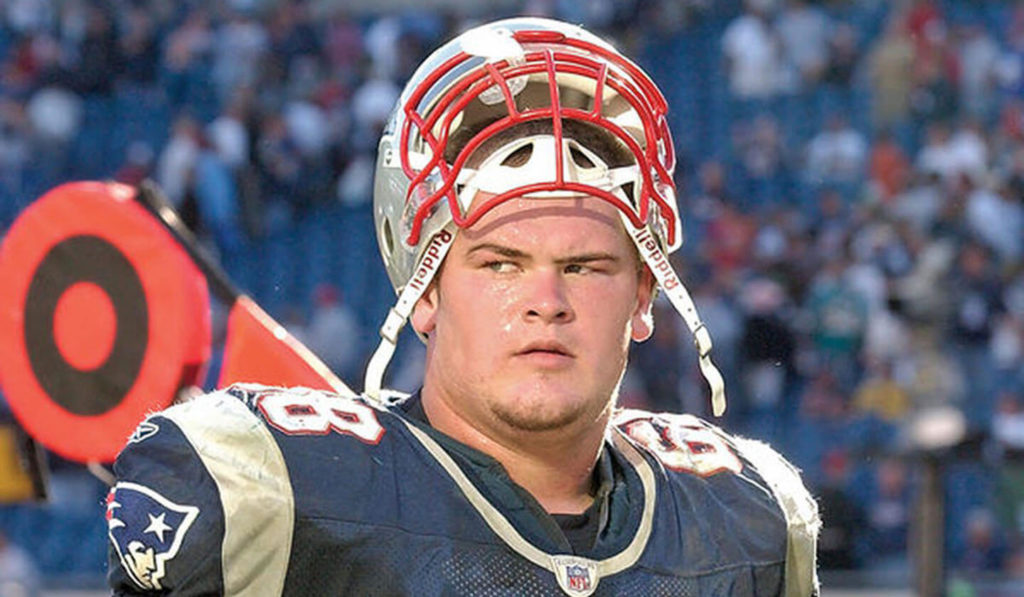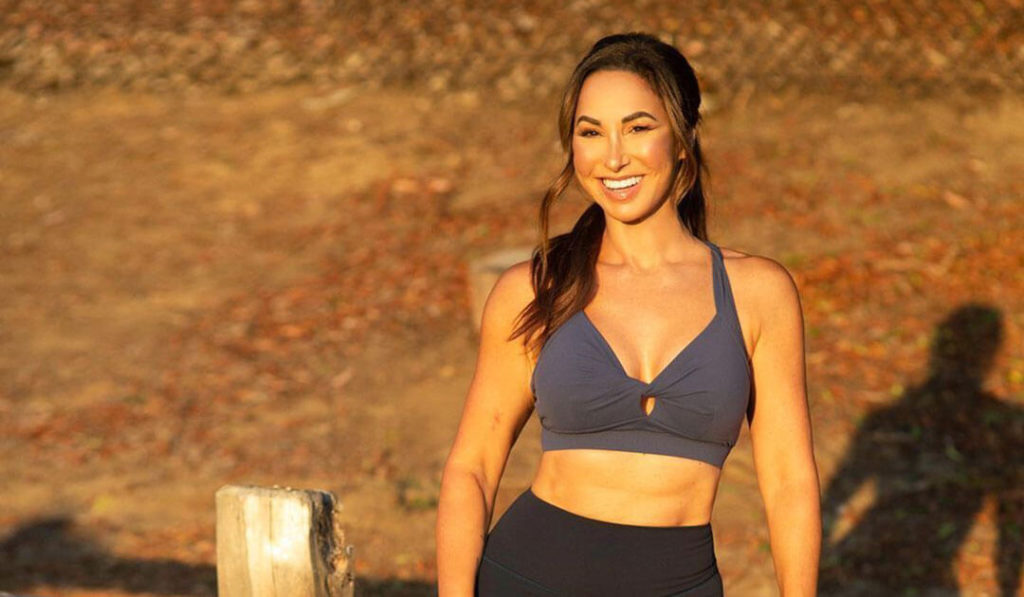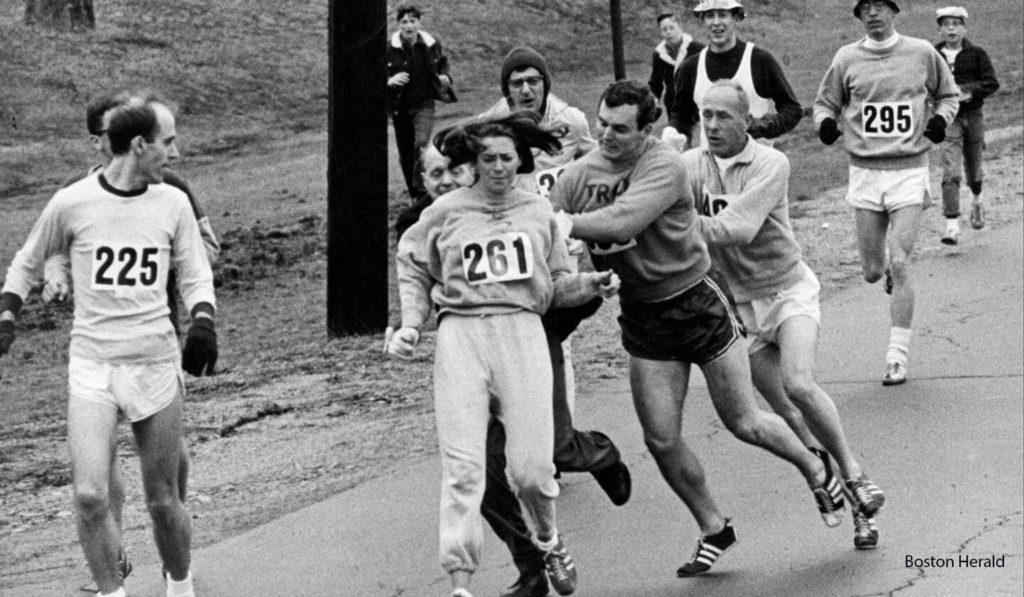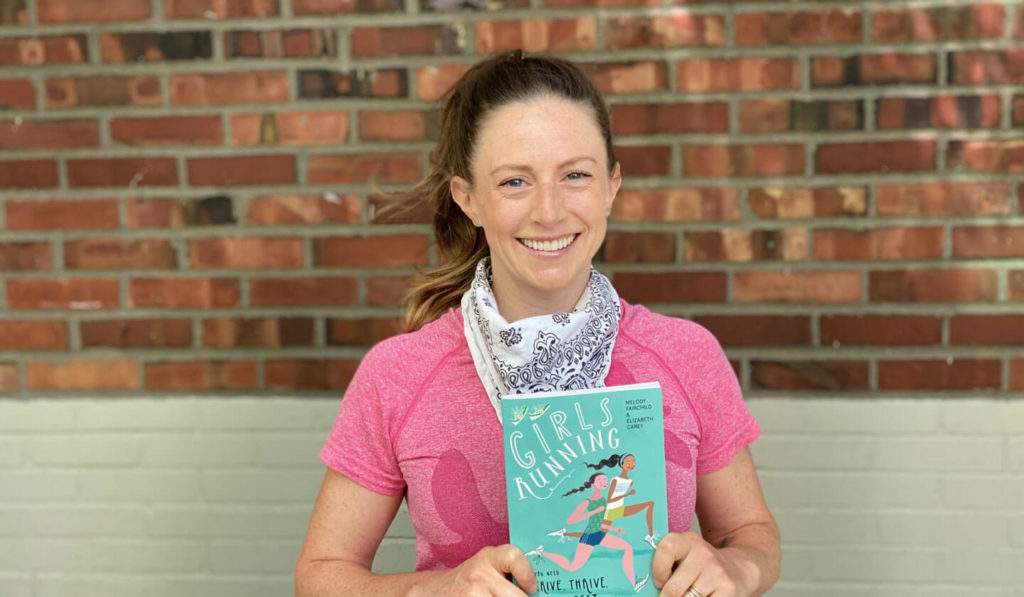With a long list of experience in the football industry both on the collegiate and professional levels, Cristi Bartlett shows us that you can do anything you put your mind to, even when society says otherwise. Going from an Intern with the Tennessee Titans to the current Director of Strength and Conditioning AD at NC State University proves just that.
In this episode, Cristi recalls her upbringing and journey to where she is today, and how she advocates for Black women.
Check out Cristi working with the Nike x NFL Girls Flag Football Partnership here.
Connect with Cristi on social:
-Instagram: @bartlettc42
-Facebook: Cristi Bartlett
LISTEN NOW
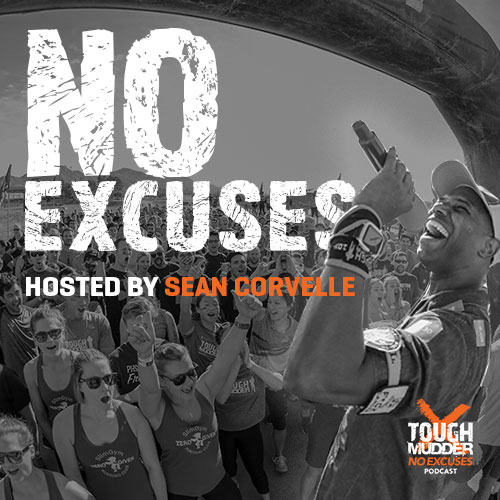
A LOOK INSIDE THE EPISODE:
TM: You know, you’re out there, you’re blazing these trails for women, you’re blazing these trails for African American women? What runs through your mind when you hear that?
C: Initially, I think I’m just doing my job. But I think there’s a lot of women out there who are blazing trails and doing a hell of a lot more than I’m doing out here as far as being advocates for young women and getting women in professional sports and all that kind of thing. I think it’s great. To see more women on the sideline, especially professional football, professional sports, they’re very capable women of coaching doing things. So I think it’s good, but I don’t really think about it too much. It’s kind of like my pre-existing condition. I’m black and female. I don’t want to hang on to that all the time. It’s just what it is. And I go to work and I do the best I can and then that’s it.
TM: Let’s go back to your time with the Tennessee Titans. Tell me about that experience.
C: It was good. I rolled in and I had obviously never been in the NFL. I was the internship coordinator at a few different schools that I was at as a strength conditioning coach in the collegiate sector. So I’ve had interns come in, and they come in way hot, they know everything and it’s like, I’m gonna tell you how to do your job. I’m like, wait a minute, you’ve never been in this setting here, so you can’t tell me too much about anything right now until you’ve been in my shoes for X amount of time. So when I approached the hole, when I came in, I was cool, hanging in the background, making sure I was just following suit with what everybody else was doing. And then one day, Frank came,it’s probably like a week and a half-two weeks, Frank came to me, he was like, “We ready to roll yet?” And I was like, “Yeah, man, let’s go.” And then I just started coaching, I’m getting a little a hell of a lot more involved in the whole strength conditioning thing. I was doing a lot of setup and breaking down the weight room and, and starting to build relationships with the guys and the staff. And then once I had the go ahead, and I didn’t want to rub anybody the wrong way, I had 12-13 years of experience, I didn’t want anybody to think that I was trying to step on anybody’s toes. So I laid low for a little bit and then Frank was like, “You’ve been coaching for forever, let’s go, let’s go, let’s go.” And I’m like, now we’re in it. So I was happy to have that support from him. Everybody there was just great to work with, the guys were great, Vrabel was great. You would walk in and you would see him and he’d be like, “Hey, Christy, what’s going on?” He talked to you so it wasn’t like we put my head down and not talk to the head guy or anything like that. Everybody was so down to earth and easy to get along with, easy to talk to, very supportive. It was great. Completely different from the collegiate sector because the program is essentially an in-season program where certain players you’re looking to at minimum maintain. Whereas in the offseason you’re looking to get better. So it’s an in-season program for the most part for six months and in-season programs are kind of boring, it’s autopilot. And it’s like you come in, you do your thing, and you’re out. It’s like an in and out program, keep them strong, doesn’t take much, see you later. And you don’t necessarily have that developmental piece there that you do with athletes, because the guys are so transient, they may be there one week, they’re out the next day, on a practice squad one week, they’re not on the practice squad the next and it’s like, you don’t actually get to see them develop physically in the weight room as what you would in four years with your athletes at whatever college you’re at. So just completely different in that aspect. But it was fine. You know, working with those high level athletes, they are there at that level for a reason. They come in and they do stuff and you’re like, What? You see him out of practice, and they’re just pulling them off some crazy stuff. And it’s like, man, you make that look easy. And they’re like, that shit ain’t easy. I was like, but it looks effortless. Those guys work their asses off, they’re in the building all day. It’s all day football. And they work their asses off. They are studying film, getting treatments, lifting weights, eating, that’s their job. It’s wild.
